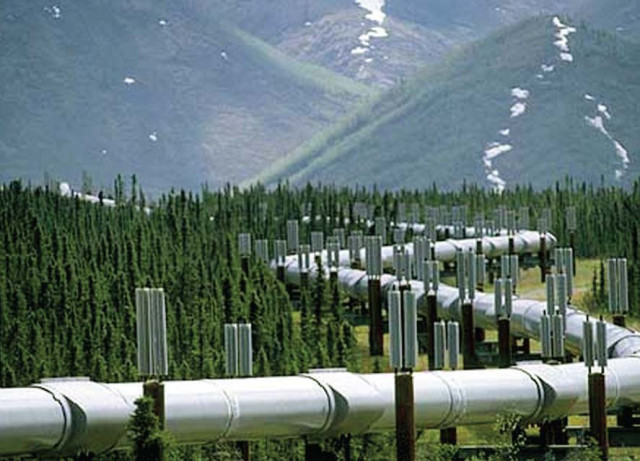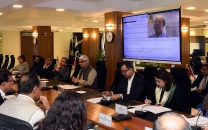US likely to persuade Pakistan to abandon Iran gas pipeline project
Economic sanctions on Iran could affect the project.

The two-day discussion on energy cooperation under the banner of Pak-US strategic dialogue come in the backdrop of recent high-level exchanges between Islamabad and Tehran in which the two neighbours vowed to expedite gas pipeline project.
US Special Envoy for International Energy Affairs Carlos Pascual, who arrived here on Tuesday, will lead the American delegation while Pakistan would be represented by Water and Power Minister Naveed Qamar.
The talks are expected to be tense after Pakistan, despite US objections, renewed this week its commitment to the Iran gas pipeline project.
Washington has long been pushing Islamabad to stay away from the project warning that the economic sanctions on Iran could affect the pipeline.
In recent months, Pakistan has reached out to its neighbours including Iran and China in an effort to offset the possible fallout of its strained ties with the US.
Last week, Prime Minister Yousaf Raza Gilani told the visiting Iranian foreign minister that Pakistan has decided to reach out to its neighbouring countries such as Iran, Afghanistan, India, China, Russia and central Asian states to improve its relations in qualitative terms.
Despite PM Gilani’s remarks, the energy dialogue appears to suggest that Pakistan considers the US help key to meeting its future energy demands.
Ahead of the talks, US envoy Pascual along with other officials met Qamar to review cooperation between the two countries in the energy sector.
According to an official statement, Pascual told the minister that the US is keen to address the energy issues and to support the future water and power projects in Pakistan.
Some programmes are already underway through USAID and more will be discussed for financial and technical cooperation in the Pak-US Energy Dialogue, he added.
During the two-day discussions, the two sides will discuss the possibility of US financing the Diamer Basha Dam.
The US had already agreed to finance part of the project despite Indian objections, which considered northern areas as disputed territory where the proposed dam is being built.
The US move will allow other international financial institutions to finance the mega project.
Naveed Qamar told the US envoy that Pakistan is looking forward to future projects and “the energy dialogue will help both countries to enhance their cooperation keeping in view the future electricity requirements”.
Published in The Express Tribune, September 14th, 2011.



















COMMENTS
Comments are moderated and generally will be posted if they are on-topic and not abusive.
For more information, please see our Comments FAQ